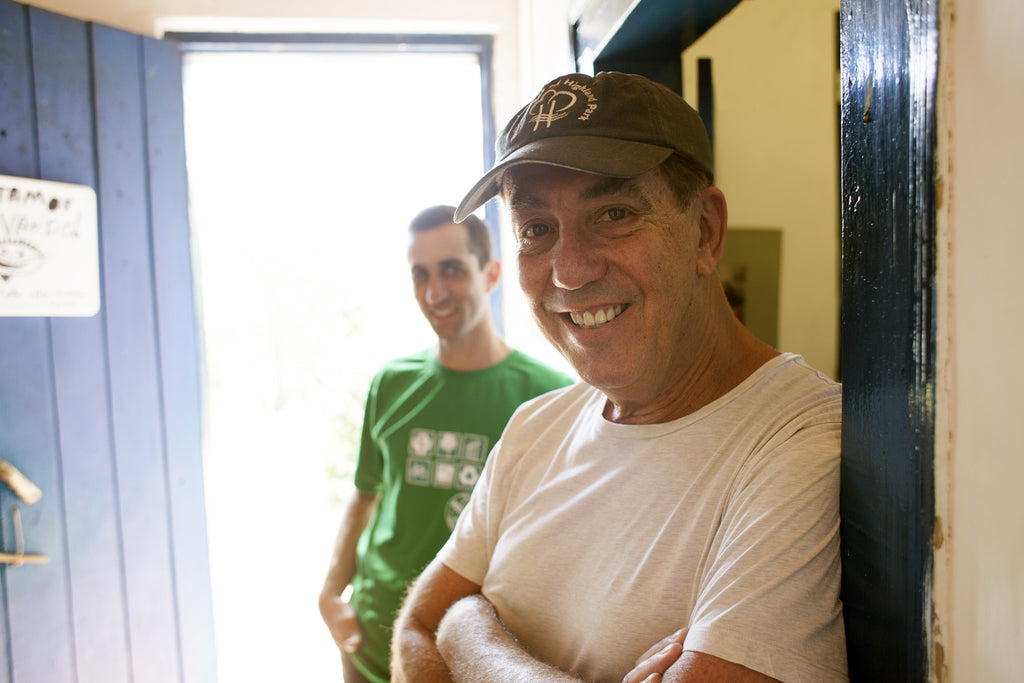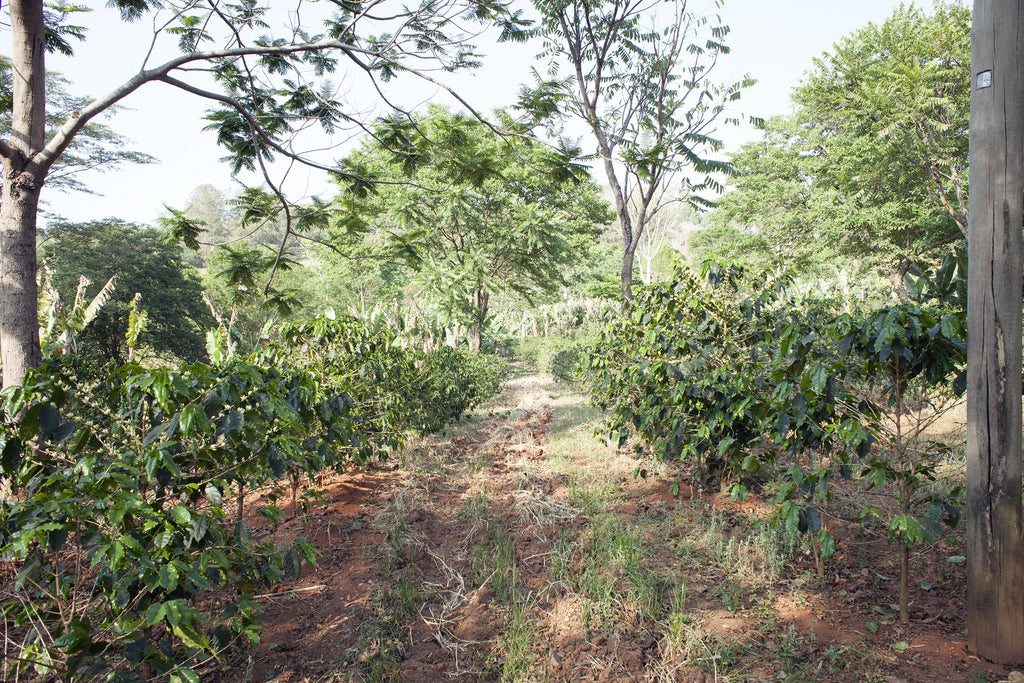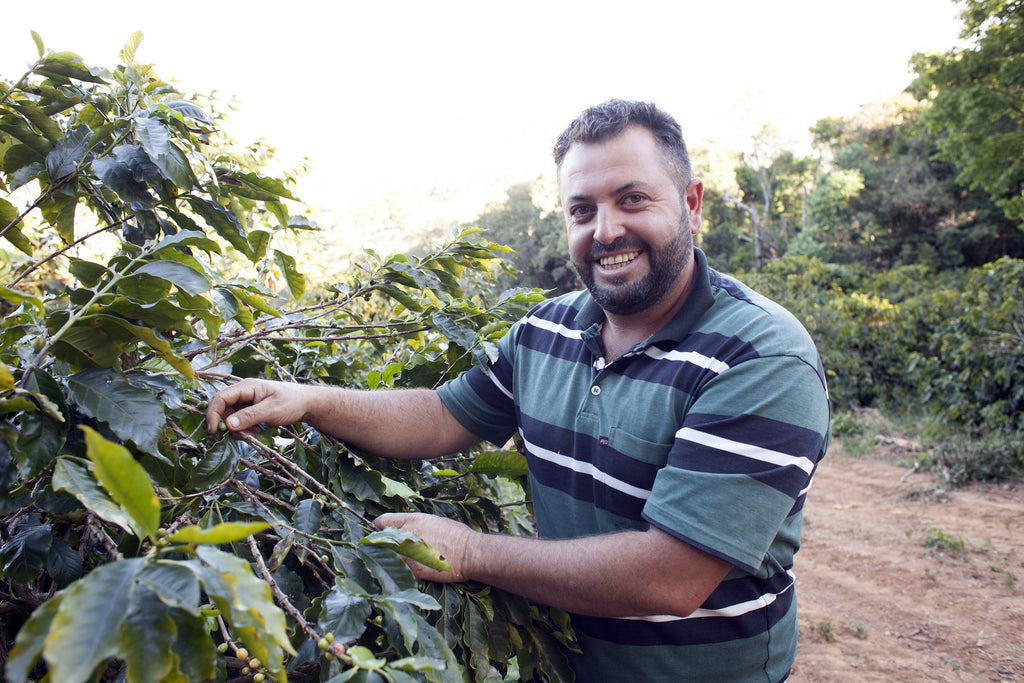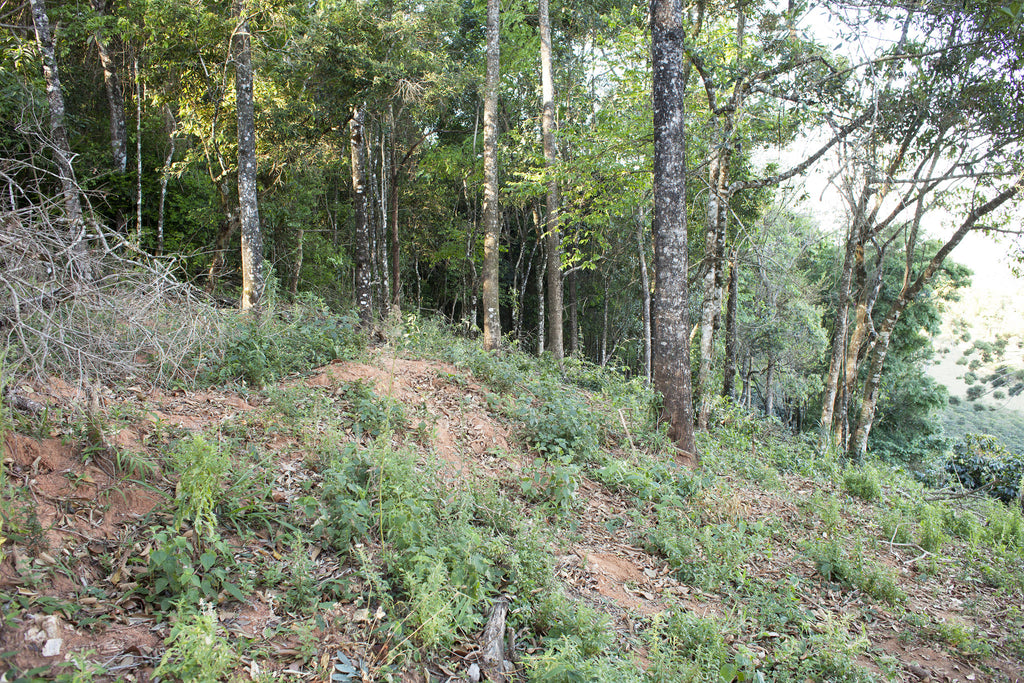In 2010 we founded our company because we had a love for coffee and cake. Within a few months, we realized that the green coffee we were purchasing from Hamburg was not as good as we wanted it to be and there seemed to be so much work at origin that we felt we should be connected to. This first drive for increasing our quality has led our company on what we hope will be a long exploration of what coffee can be. It is a journey that we are thrilled has included so many wonderful people who share these ideas with us and are working for a similar reasons.


This is a brief history about our partners in Brazil and our current season of Brazil coffee, which for us started back in 2011.
In 2011 we met Marcos Croce from Fazenda Ambiental Fortaleza, who along with his son’s Daniel and Felipe, had been passionately involved in discovering what was possible on their farm. Marcos’ wife and partner Silvia Barretto had taken over this farm from her family in 2002 (the farm had been in her family since 1850). Silvia’s father had been producing around ten thousand bags of green coffee a year for sale to Illy espresso each year.
At the time, the farm had been a traditional farm with 150 farm hands. With a dream to convert the farm to Organic production (Silvia has a passion for biodynamic farming), they set out on a new life direction.
In the first years of taking over the farm, Silvia removed the use of agricultural chemicals from one day to the next. This drastic change reduced the production of coffee on the farm substantially to the point where the family decided to lease a large part of the farm to a sugar cane grower.
Returning to the farm in 2010 (the year we founded our company), the team focused heavily on introducing permaculture, whereas a diverse range of organic matter was made available for nitrogen fixing. After a few years of these practices, Silvia and Marcos realized they were slowly making the farm financially solvent.

Photo - The Active Organic Process at FAF
With some success, Marcos had the idea to spread the ideas of production to the farmers who had been working on the farm and were now producing their own coffees (or had had coffee production on their lands before).
The idea was to allow the individuals and their families, who had been working on their farm, to benefit from the coffee they produced more than with an hourly wage. Marcos wanted them to receive at least half of the money received from any coffee they they planted, with agronomic, milling and marketing support by the FAF team. This radical idea transformed the ideas of how coffee was produced in their region.

Photo - Fazenda Ambiental Fortaleza - Passive Organic Production
At first there were a handful of producers who started working with them, producing distinctive microlots, but also contributing to a blend of coffees. Now the group has grown to include producers all over the region and from other States of Brazil.
So with all of this history and experimentation, our commencement of working with the FAF family was exciting. From the first year (2011 harvest) we purchased coffee we were introduced to a Sumatra (Typica) coffee that we still remember to this day. It was FAF Lot #91.
To put things in perspective this year our FAF Lot numbers range from 990-1053.
In the past few years, Marcos and Felipe has been involved in the development of an index to understand and gauge sustainability, which we had started thinking was a vague and difficult term to measure.

Photo - João Hamilton
As a company this topic is important, since we are ultimately the ones who want to stand behind the projects we work with.
Often producers have no incentive to experiment with new ideas, since the yield is low and the outcome is unsure. Our goal here is to partner with the production team and work on a long term solution to develop unique coffee that is adaptive for our changing climate.
One of the important aspects of how Marcos and Felipe are looking to the future is to create a diversity in the varieties that are accessible for them to cultivate. In the past two years Five Elephant has committed to a small plot of land at Novo Canaã, which is managed by Felipe and João Hamilton together. Here we are committed to purchase the production of some experimental cultivar lots, to encourage Organic production, but also the production of alternative varieties.

Photo - Five Elephant / FAF / Hamilton Project

Photo - Five Elephant / FAF / Hamilton Project
It is with projects like these that we hope to mitigate the effect of climate change and the challenges that come with it, like extreme weather and disease.
I has also been important to adapt with production techniques, to have some control over variations of the cultivation process.
Felipe has been busy with testing all aspects of production and since we had arranged for our team member Bara Ernygrova to be on the farm for some months, he tried out some new ideas with Bara on coffee that we decided to purchase.
In our next post, we will discuss some of the new processing techniques that were tried on our current coffees involving Lactic Acid Fermentation on a washed process coffee......


Leave a comment